New Yorkers, audiences, and artists alike struggled throughout the decades of the Foundry’s producing life to pin down what it was. Like the blind men struggling to explain the elephant, a graphic that appears in the pages of Moment, the Foundry’s approach to its mission was too expansive, too ungainly to get your arms around. But here, in this book, its full shape and substance is discovered one essay at a time. And it is revealed, in the end, to be a heffalump—just like Joseph always said it was.
Some authors in the book speak of the Foundry as a theatre company, some as a community organizing effort, some as a career move, some as a core value, some as a world. Alisa Solomon, a professor at Columbia University’s Graduate School of Journalism, sets the reader straight in her gorgeous opening essay, “Inventing the World: A Quarter Century of Foundry Plays”:
Among its many community events, dialogues, World Social Forums participation, pre-Thanksgiving feasts for hundreds of guests, activist conferences ... the Foundry has been, after all, a theatre company, with the primary purpose of making art. The relationship between that art and these other endeavors—which I hesitate to call ‘other,’ for they have been fundamental to the Foundry and profoundly attached to its art-making—is complicated, sophisticated, and hard to describe in the shallow terms of American discourse about art and politics.
In form, the book is another manifestation of the Foundry as radical idea.
Rolling in the Deep
The discourse about art in Moment does not settle for shallow. From Joseph’s first conversation with her co-founder and mentor—the brilliant radical democratic intellectual and Harvard professor Cornel West—which is revisited here by both West and Joseph in Moment’s pages, she was calling for the radical engagement of artists in the (r)evolution. From her position in the footnote at the bottom of the page, she writes:
I am so pissed off at Aristotle, for taking on Plato in the terms he did in The Poetics. For choosing to defend the value of art to a city-state but nowhere defending the artist as a participant in its creation—as a citizen…. This hegemonic argument has poisoned the well for artists—and democracy—for nearly 2500 years. Aren’t you sick to death of arguing the value of art?
Art’s value, and the value of artists in world-making, is a given for the Foundry, and the book doesn’t waste the reader’s time making that case. There are so many other urgent considerations to take up. There is deep wisdom in these pages; for instance, for theatremakers yearning for an alternative to hierarchy. Vision is lonely, and the visionary longs for companions in the wilderness of ideas. The further outside the settled realm of ideas one’s vision sits, the lonelier—and more singular—it is. Joseph has been out there all along, aching for partners and unable to fully delegate the vision. She has spent all twenty-five years of the Foundry experimenting with, and failing at, models of shared leadership. Moment makes space for her, and for many of the people who experimented with sharing it with her, to lay bare the attempts and the learnings. The accounts are moving, generous, and clearly rendered.
In his essay, “A Reflection on Making Together,” RJ Maccani quotes the anti-colonialist poet and political organizer Amilcar Cabral who urged “Mask no difficulties, mistakes, failures. Claim no easy victories.” Maccani, himself a social justice organizer, was for a time a Foundry co-leader with Joseph and contributes two pieces to Moment. “If we don’t try to tell the story as it really happened or as we really experienced it, then we’re not making the biggest offer to who comes next,” he writes.
Yale professor Anne Erbe also spent years as a co-leader of the Foundry, as producer and dramaturg on plays, convenings, and events, and ultimately ending her tenure as a member of the board. “The level of rigor Melanie brought to the analysis of the mundane has been unparalleled in my life,” she writes. “Whereas others might counsel ‘pick your battles,’ the Foundry’s was a war on all fronts. And I get it—the internalization and replication of oppressive systems is perpetuated in the automatized details of everyday life.” Erbe’s essay is particularly moving, as she has gathered a number of people who went into that war with her to try to unpack what they’d been through and what they still carry of that time.
[Joseph] has spent all twenty-five years of the Foundry experimenting with, and failing at, models of shared leadership.
Are We There Yet?
The essays in Moment make a compelling case for the world Foundry was attempting to make and artists’ place in it, but they also reveal a heartbreak: there has been no groundswell, yet, of artists joining in the making of that world. That “yet” is important. Carl Hancock Rux’s essay “The Economy of Hope” reminds us that even as the Foundry is sunsetting its production of plays: “One goes on struggling with despair and searching with words and keeping words at bay, ultimately succumbing to the power of language and its ability to conceive thought, to speak a thing, and by doing so, to make it true,” he writes. “The Foundry posits a heroic society, daring to create its own future.”
“Yet” because simply ceasing the production of plays and conferences doesn’t mean the Foundry’s a past-tense thing. Joseph often says, to the people who ask her why the Foundry is closing, “How can an idea ‘close’?” In her footnote she elaborates:
Here’s what’s true: the Foundry has stopped making plays, dialogues, and community programs that have been the material demonstrations of its mission, and as of now we consider this book the last of those productions. But you can’t really close a mission—at least not one like ours.
As a means of investigating the question “To what end permanence?,” Diane Ragsdale’s essay of the same name juxtaposes the transition at the Foundry with the startling announcement by renowned Merce Cunningham Dance Company (MCD) in 2009 that it would stop making and touring work upon the death of its iconic founder. MCD planned to do one final two-year tour and then exit stage left. (Moment is, to my mind, the Foundry’s equivalent of that final tour.) Like MCD, the Foundry has put considerable energy into archiving their work and with that, and this book, the flame will still draw interested moths and heffalumps to engage and wrestle and learn. You can hear in these pages the voices of the former staff and former interns, carrying their own inner fires—first lit by Joseph—on into their own careers. Here, also, are many of the artists who forged their own productions at the Foundry. Hancock Rux, Aaron Landsman, Alice Tuan, Taylor Mac—all still very clearly lit from within by the Foundry’s vision of the world.
Mac contributes a hilarious fictional interview between “Taylor” and “Taylor as Fran” (as in Fran Lebowitz, the author, public intellectual, and subject of a Martin Scorsese documentary). I hope one day to see Mac perform this one. (At one point, “Taylor as Fran” offers, in classic Lebowitz form, “The best thing about going to the opera is that, when you wake up, you are at the opera.”) The whole book, in fact, is funny and furious, poetic and analytic, a primer and a prayer. It’s a stroll down memory lane for some of us, and a torch lighting the way to that world that Joseph is still calling out to us from, inviting us to join her.
Moment is many moments. It is the moment you read it. It is the moment its authors wrote it. It is the twenty-five-year moment of the company. It is the millennia-long moment of humans’ struggle for justice and beauty and connection. It is a moment on the clock of the world. It is what we make of it, both the world and the words within.

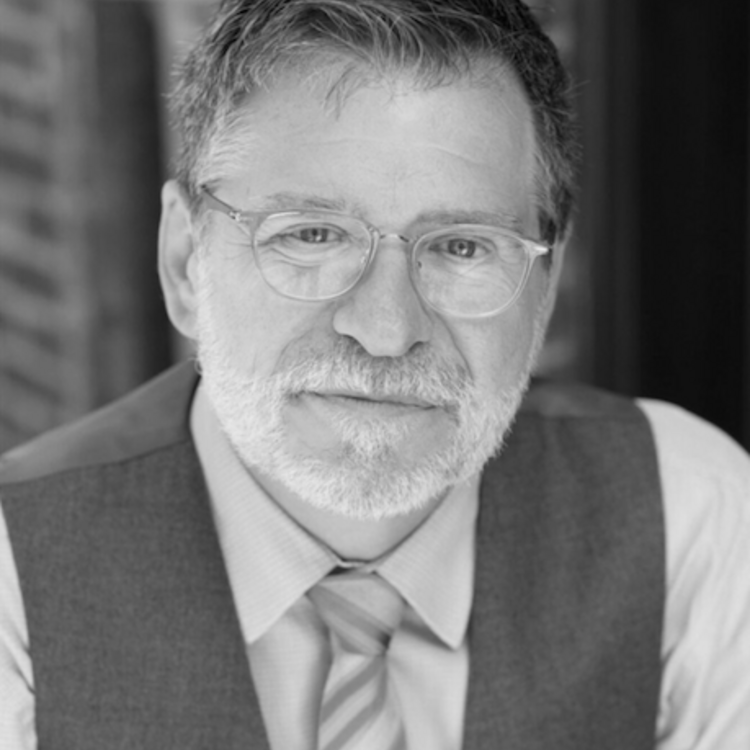
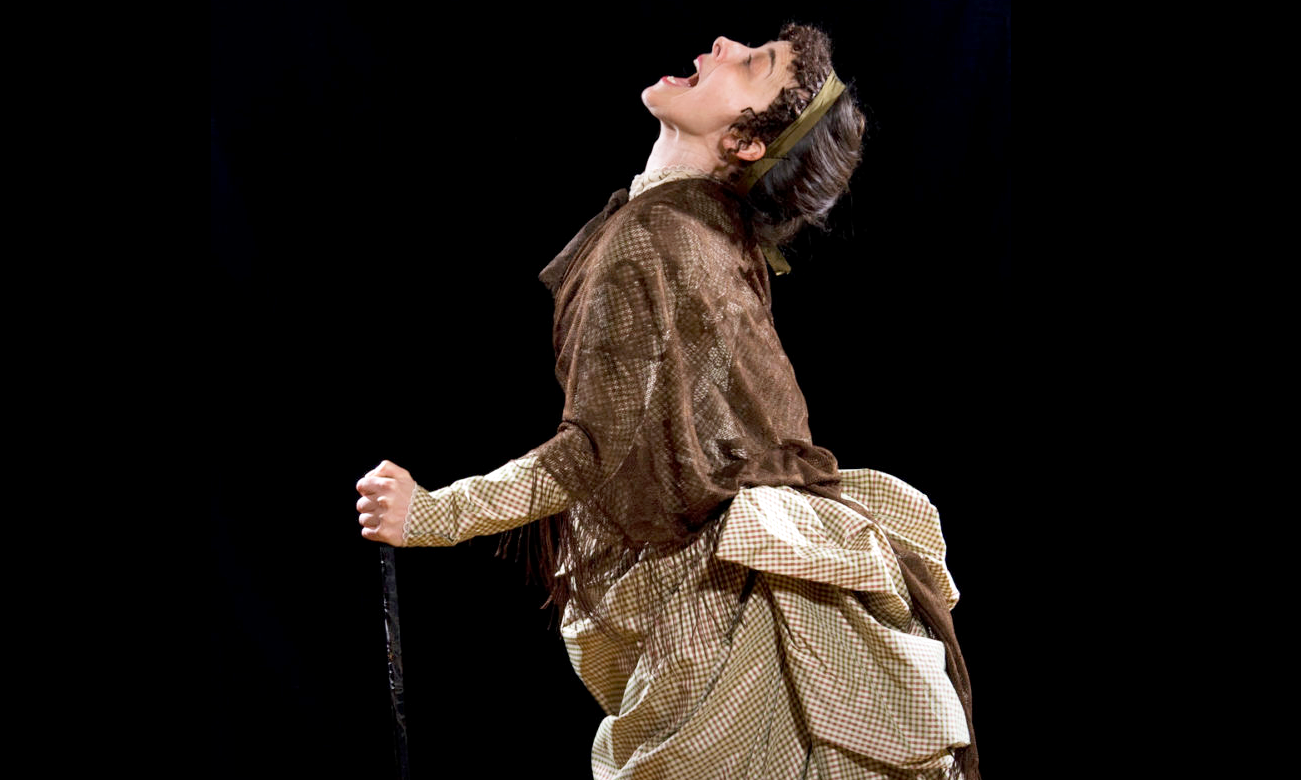
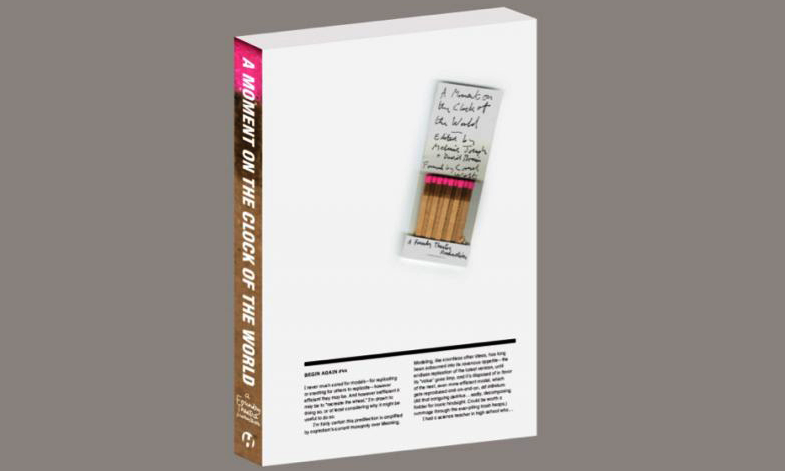
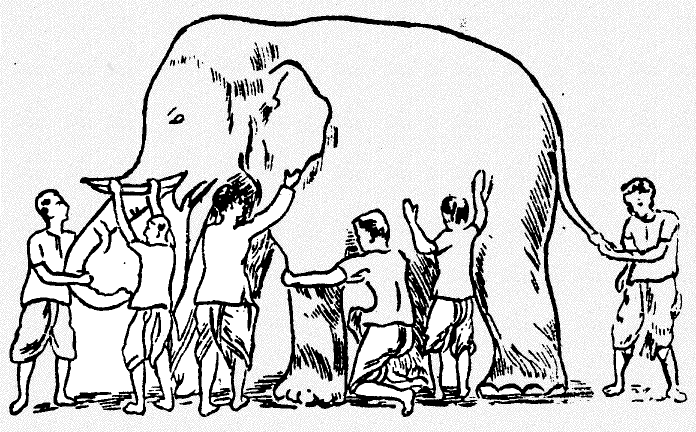
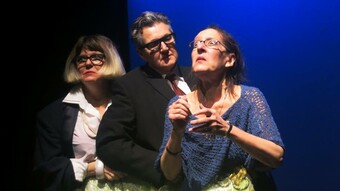

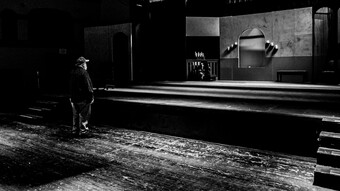


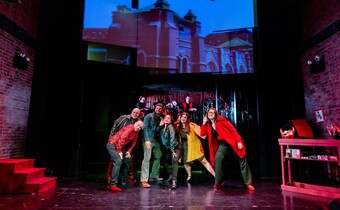


Comments
The article is just the start of the conversation—we want to know what you think about this subject, too! HowlRound is a space for knowledge-sharing, and we welcome spirited, thoughtful, and on-topic dialogue. Find our full comments policy here